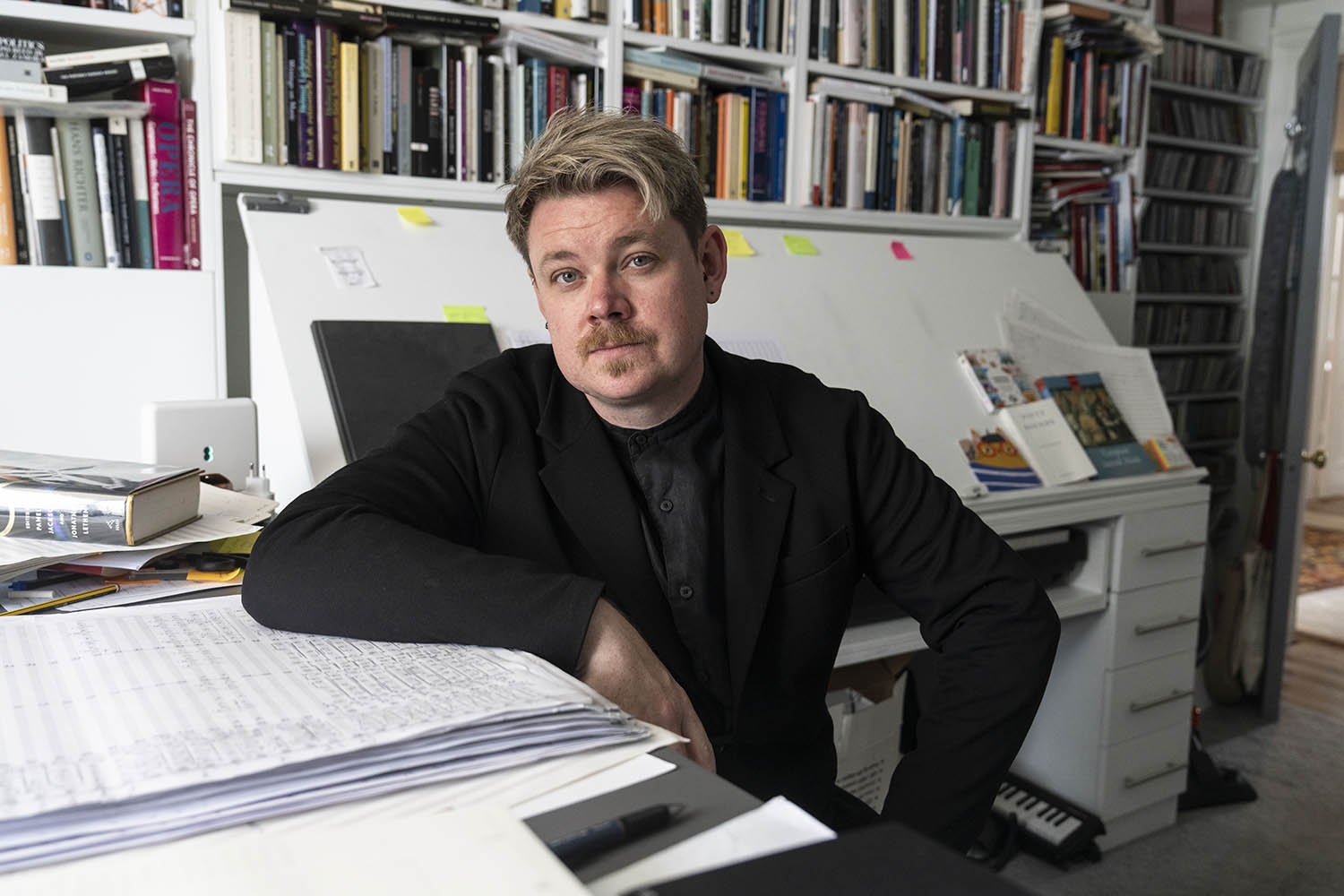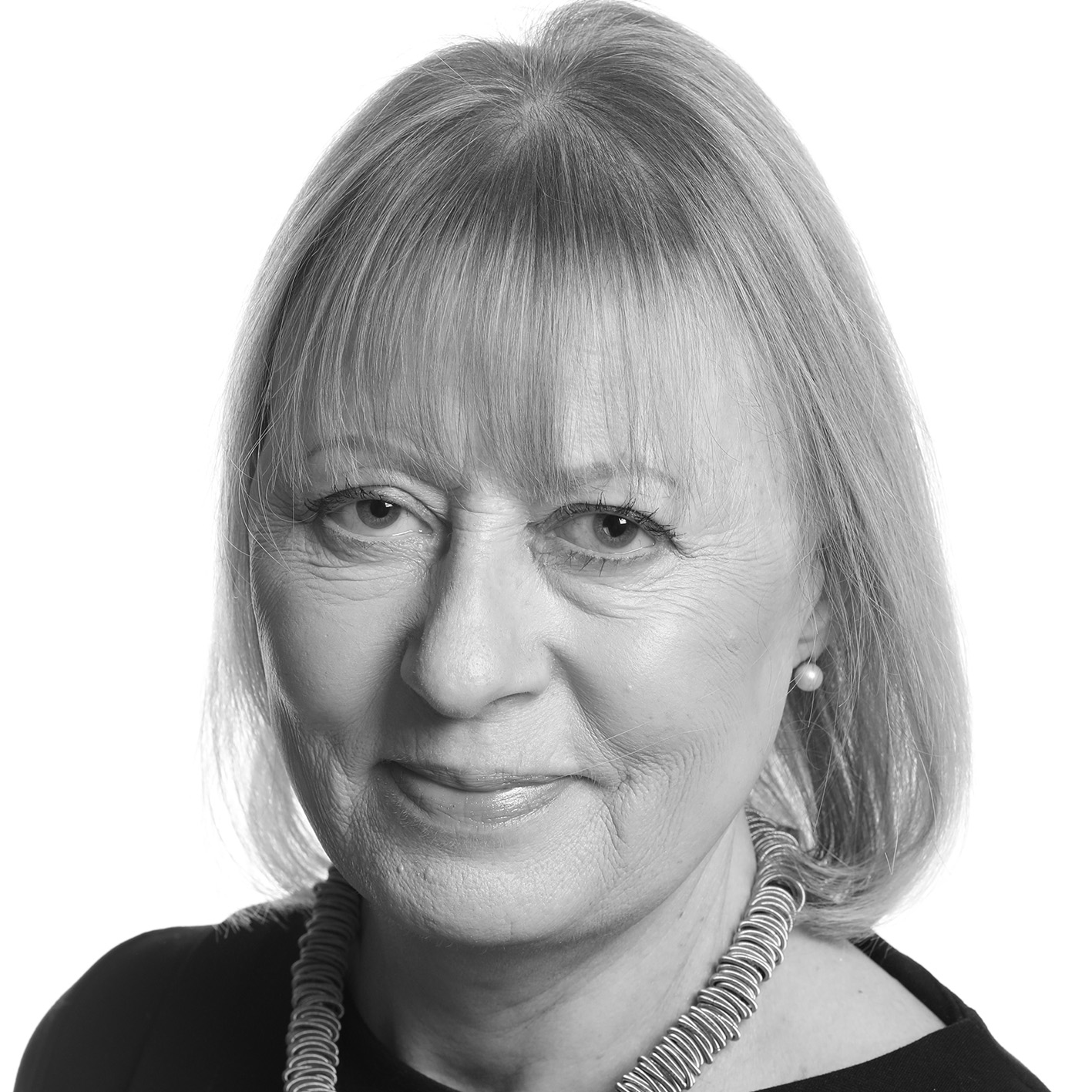Composer and internationally renowned clarinettist Mark Simpson, 36, was born in Liverpool and educated at the Royal Northern College of Music and the University of Oxford. In 2006, he became the first person ever to win both the BBC Young Musician of the Year and BBC Proms/Guardian Young Composer of the Year prizes. He will be artist in residence with the Royal Liverpool Philharmonic Orchestra in the 2025/26 season. The world premiere of his BBC commission, Zebra, an electric guitar concerto inspired by the cult sci-fi writer Philip K Dick, will be performed at the Royal Albert Hall by the BBC Philharmonic and guitarist Sean Shibe on 22 July, conducted by Anja Bihlmaier.
Zebra (or, 2-3-74: The Divine Invasion of Philip K Dick) is one of this year’s major BBC commissions. Can you unpack the title for us?
Where to start! Zebra is inspired by Philip K Dick’s spiritual awakening. A woman came to his door in February 1974 to deliver medication to him. She was wearing a Christian fish sign necklace and apparently the fish beamed pink laser beams of light into him. He claimed the light had uploaded mystical information, cryptic messages to his brain. I’m drawn to experiences, hallucinations, that can be described as transcendental or mystical.
Why is that? Do you seek them out in your personal life?
No, it’s through music and art that I have these experiences.
Lots of your music is shaped by dreams and darkness. What’s this new piece like?
It’s for electric guitar and large orchestra with [optional] organ, synthesiser, four percussionists, giant drum kit with seven tom-toms. I’ve written it for the guitarist Sean Shibe, who is an amazing performer as well as a friend. It’s not unplayable but it needs someone with a fearlessness and brilliant curiosity.
Does his versatility and intensity relate to your own experiences as a performer?
Yes, definitely. I’ve been told that when I perform I’m like a shaman, or a whirling dervish. I’m aware that something happens to me and I enter a different state. Music is a kind of magic. I’ve felt that since I first played in orchestras as a child. I lose the sense of real time. Things just are. I feel a sense of communication emanating from somewhere deep inside me. My soul? My spirit? It’s the realm where words are useless.
Newsletters
Choose the newsletters you want to receive
View more
For information about how The Observer protects your data, read our Privacy Policy
To win BBC Young Musician of the Year and the BBC Proms/Guardian Young Composer prizes at the same time – when you were 17 – must have had a huge impact.
It changed my life overnight. Not just the professional gigs I got as a result, but also the way it changed how others saw me as a musician. It was a very difficult thing to have gone through, looking back on it. I think they should change the age range of the Young Musician of the Year to 18-24 or even older [it is currently open to those aged 18 or under], so that you are absolutely 100% ready for that career.
What was your upbringing like? Was there music in the family?
I grew up in a working-class family in the Tuebrook/West Derby area of Liverpool. Three of my grandparents worked in the Jacob’s biscuit factory. My grandfather was a lorry driver and my two nans worked at packing the biscuits. It was clear from early on that I was a bit of an anomaly.
Statistically, not many in the classical world have had my upbringing, without any automatic cultural engagement, and end up doing what I do. I’m aware that I’ve in some ways transcended my background, working with international musicians at the highest level. But everything I’ve done is because I love doing it. I wanted, quite naturally, to play, to write, to get to know art, to read.
Did school in any way help you find your vocation?
The infrastructure for music education was amazing – free instrument lessons, a free clarinet, Merseyside Youth Orchestra, then on to lessons at the Royal Northern College of Music on a Saturday. As I worked my way through the system, and won local young musician awards, I began to have wild teenage ambitions. But I’ve pushed myself hard, and always been very self-critical.
The conductor Simon Rattle played in Merseyside Youth Orchestra too. Was he an inspiration?
You can’t grow up in Liverpool as a classical musician without Simon Rattle being a huge influence. He’s omnipresent. He’s our boy, our biggest success story.
Did your family support you?
They were proud even if they didn’t fully understand the implications of where it might lead, but really they just let me get on with it. It was my dad who saved up money and bought me a professional-level clarinet when I was 14 – a Peter Eaton instrument, the kind I still play.
When did you start writing music as well as playing?
When I was about 12 or 13 and was playing in orchestras. I started buying musical scores and going to all the concerts by the Royal Liverpool Philharmonic Orchestra and [the contemporary music ensemble] 10:10, and I loved to imagine my own music being performed by those fantastic musicians. It’s such an overwhelming, unbelievable experience to now be RLPO composer in residence, with five pieces being performed by them next season.
How hard was it growing up gay in Liverpool at that time?
There was a vibrant community and rich nightlife that became a second home of sorts – a place I could go to escape the everyday homophobia I would experience around me, on the bus to school, at the football match, or just casually in the street. When out of a night I used to see the clubs as a theatre of sorts and imagine the lives people may have and stories we might share. This experience became the basis of my first opera Pleasure, set in a gay nightclub in the north of England.
Away from composing your own music or performing, what do you listen to?
A lot of techno – specifically Jamie Roberts, aka Blawan. I first heard him as a student – there were a couple of tracks always played on the dancefloor. He’s working in a different genre but he’s an amazing composer, one I’m really excited by. There’s also a very intricate textural layering, and a grandeur bordering on the symphonic. It’s of such a high quality; such a level of rhythmic sophistication and production. I heard he learned music first as a drummer so that’s no surprise. I’m a huge fan. He collaborates with a lot of people. Who knows? Maybe one day.
The world premiere of Zebra is at the Royal Albert Hall on Tuesday 22 July
Photograph by Antonio Olmos for the Observer New Review

